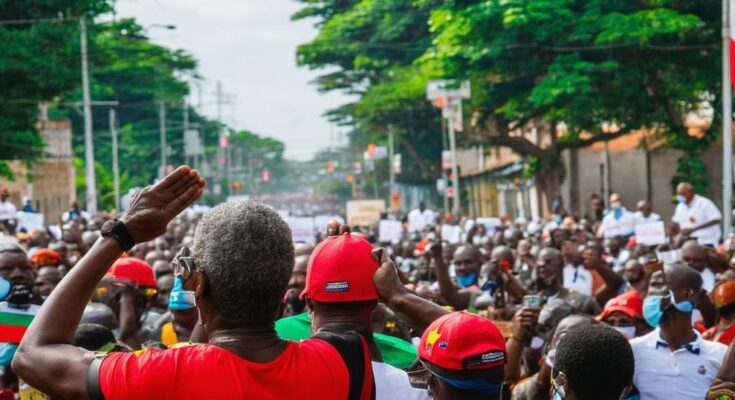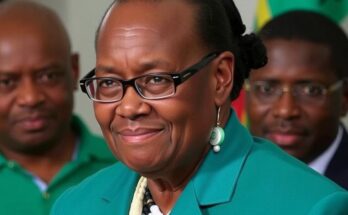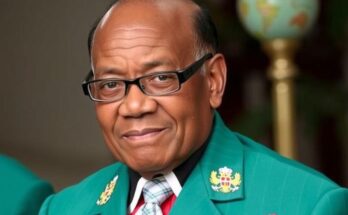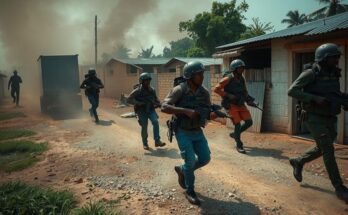Daniel Chapo of the Frelimo party has been declared the winner of Mozambique’s presidential election with over 70 percent of the vote. His victory is met with claims of electoral fraud from opposition leader Venancio Mondlane, who argues he won the election. The European Union’s observer mission cited issues during the polling process. The political atmosphere is fraught with tension following the murder of two opposition officials and subsequent protests.
The ruling party of Mozambique, Frelimo, has announced the victory of its presidential candidate, Daniel Chapo, who has garnered over 70 percent of the votes in the recent election, according to the National Election Commission (CNE). This declaration comes amidst serious allegations of electoral fraud from opposition factions, primarily led by independent candidate Venancio Mondlane, who finished second with over 20 percent of the votes. The CNE also reported that Ossufo Momade, representing the opposition party Renamo, received more than five percent of the votes. Chapo’s election extends Frelimo’s hold on power, marking nearly five decades since Mozambique’s independence from Portuguese rule in 1975. His installation as president will make him the first leader born after the country’s independence. Meanwhile, Mondlane has publicly challenged the legitimacy of the results, asserting that he was the rightful victor and alleging widespread electoral manipulation favoring Frelimo. In light of these claims, Mondlane is calling for national protests against Frelimo’s prolonged governance, stating, ‘The time has come for the people to take power and say that we now want to change the history of this country.’ The electoral process has faced significant scrutiny, as observers from the European Union have noted impediments faced by their monitoring teams, including reports of ‘unjustified alteration’ of results at various polling stations. Tensions escalated in Mozambique following the violent killings of two opposition officials, including a key advisor to Mondlane, leading to accusations against security forces by opposition members. In reaction to protest activities sparked by these events, police have deployed teargas to disperse demonstrators, emphasizing the charged political atmosphere as Mozambique enters a new chapter of leadership.
Mozambique’s political landscape has been dominated by the Frelimo party since the country’s independence in 1975. The recent presidential election, held on October 9, 2023, has reignited discussions about the integrity of the electoral process in a nation that has a history of political turmoil, including a protracted civil war against the Renamo party, which evolved into the main opposition. The election results were contested almost immediately, with allegations of electoral fraud fueling protests led by opposition leader Venancio Mondlane. Such unrest has highlighted longstanding tensions between Frelimo and opposition parties, casting a shadow over democratic processes in Mozambique amidst the backdrop of internal strife and violence.
In conclusion, the recent presidential election in Mozambique has once again spotlighted the contentious relationship between the ruling party Frelimo and opposition factions. Daniel Chapo’s declared victory has been overshadowed by allegations of electoral fraud and violence against opposition members, raising critical questions about the integrity of democracy in Mozambique. As the political climate remains tense, the call for public protests indicates a significant desire for change among the populace, challenging Frelimo’s nearly half-century rule.
Original Source: www.aljazeera.com




